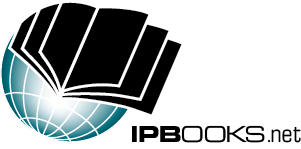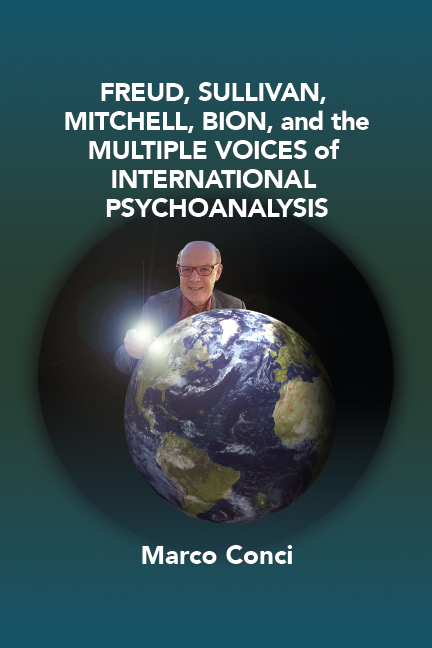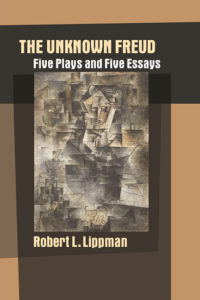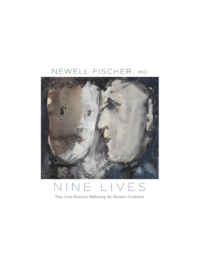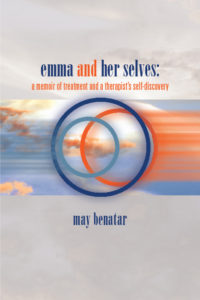Freud, Sullivan, Mitchell, Bion, and the Multiple Voices of International Psychoanalysis by Marco Conci
$35.00
Advance Praise for Freud, Sullivan, Mitchell, Bion, and the Multiple Voices of International Psychoanalysis by Marco Conci
Marco’s curiosity has captured me from the very beginning. His surprising openness has impressed and touched me. I have found in his writing the gentle and free thinking of a child, a child curious to explore the analytic perspectives developed in North America, which also attract me for what I perceive as being their creativity – a creativity which I did not find in my own country, which is one of the reasons why I left it. Through his words I understood how important the history of psychoanalysis can be for us analytic candidates. It promotes an openness towards new worlds and new thoughts, allowing us to meet our fathers and to come in touch with their legacy. If this happens, this will allow us also to more easily find our own analytic identity. It is by establishing connections with little known paths and by looking for unexplored itineraries that we find our identity as human beings and even more as analysts. Freud himself gave priority to the yet unknown and unexplored aspects of our mental life.
To meet the history of our field means not only getting to know other worlds and other lives, but also unexpectedly meeting pieces of our worlds and our life in unexplored continents. I thank Marco who, through his book, gives us the possibility to travel with him and get so well in touch with our multiple legacies.
Chiara Bille, Argentinian Psychoanalytic Association
Marco Conci’s view of psychoanalysis is truly dialogical and embedded in real life. The interpersonal encounter is the catalyst and yeast of this collection of scholarly written essays and fresh interviews, which provide a detailed map of the enlargement of the horizons and differentiation of perspectives experienced by psychoanalysis in the last decades.
A necessary tool for the academic historian of this
discipline, this lively book is also a travel companion for the
clinician who feels the urge to adapt his views to the patient, instead of forcing them on to the patient. It shows how the principle of elasticity, introduced by Ferenczi in the analytic encounter, can successfully be applied to our need to organize psychoanalytic wisdom.
Carlo Bonomi, president of the International Sándor Ferenczi Network
This unique anthology of papers by Marco Conci convincingly shows how much candidates could profit from coming in touch with a variety of authors and analytic traditions.
Franco Borgogno, University of Turin, Italian Psychoanalytic Society, and Recipient of the Sigourney Award
Every fractured field needs a capacious thinker, generous in spirit, who relaxes rigidities, heals splits, and includes the previously excluded. In this valuable anthology, Marco Conci creates a true international psychoanalysis, forging a historical arc that reverses prior disappearances. Cataloguing psychoanalytic theory across continental boundaries, he demonstrates an ethic of inclusion through his longstanding fine disregard for geographical, parochial, and continental customs. Anyone who aspires to a broadly defined, nonprejudicial psychoanalytic awareness should read this book – it is our new global standard.
Andrea Celenza, American Psychoanalytical Association
Marco Conci has a double gift. On the one hand, he explains to us the most important points of view and the major preoccupations of Freud, Sullivan, Mitchell, and Bion, from the perspective of the historian and on the basis of a personal selection of a whole series of sources. On the other hand, his analytic competence allows him to show us the roots, the contradictions and the value of the various analytic concepts and hypothesis he deals with. His ambition and his capacity to connect and let these two perspectives interact with each other is convincing and makes his book into an important document.
Michael Ermann, German Psychoanalytic Society
Marco Conci, more than anyone else, is responsible for introducing both Interpersonal and Relational psychoanalysis to the European continent. Just as he did in his groundbreaking biography of Harry Stack Sullivan, here he focuses on Stephen Mitchell’s contributions and how these are closely linked with Sullivan’s revolutionary theorizing. Dr. Conci illustrates in great detail, partly stemming from a close personal relationship with Mitchell, how Relational psychoanalysis evolved and what are its essential features. How Dr. Conci’s scholarly interests and curiosities have directly led to a profound expansion of psychoanalytic theorizing in Europe is a must read for anyone with any interest in psychoanalytic scholarship.
Irwin Hirsch, New York University Postdoctoral Program in Psychoanalysis and Psychotherapy, William Alanson White Institute
A fascinating and masterfully written account of the history of psychoanalysis – full of exciting encounters and vibrant ideas, throbbing with life. The power and glamour of Marco Conci’s book spring from his deep insight into the profoundly “dialogical nature” and the international character of psychoanalysis. Bridging the divides between various schools, Conci skillfully navigates us through the history of psychoanalysis and will largely help historians of psychoanalysis and everyone interested in psychoanalysis to understand the “multiple voices” of psychoanalysis in the past, present, and in the future. This is psychoanalytic historiography at its best.
Galina Hristeva, Recipient of the 2011 IPA-Sacerdoti Prize
Marco Conci has written a valuable book for anyone interested in psychoanalysis. He offers a comprehensive view of the minds and psychoanalytic approaches of critical figures in the profession providing biographical, social, and historical context. The book is beautifully woven together with personal and professional aspects of the author’s experience. This is an excellent and wonderfully readable book in and about comparative, international psychoanalysis.
Montana S. Katz, National Psychological Association for Psychoanalysis
Internationally acclaimed historian of Harry Stack Sullivan, Marco Conci now gives us a most informative and readable history of international voices in psychoanalysis, adding an interesting autobiographical note.
Henry Zvi Lothane, Icahn School of Medicine at Mount Sinai
Marco Conci is both en route and at home in the various cultures and communities of Psychoanalysis, tirelessly creating connections and promoting contacts, notwithstanding our Babylonian language confusion. His own Italian-German-American biography, openly unfolded before us, together with his scholarly achievements, offer a welcome evidence that a universal, cosmopolitian Psychoanaysis is possible.
Ulrike May, German Psychoanalytic Association
Psychoanalysis goes through an ongoing process of revision and further development of Freud’s original concepts. Marco Conci’s unique and very well researched anthology represents a mandatory reading for the knowledge of some of the most important lines of development which starting from Freud, and going through Sullivan and Bion, include the present debate on the analytic field concept.
Especially his deep knowledge of Sullivan and Bion allows us to come to new and surprising insights into the thinking of these two pioneers of contemporary psychoanalysis and represents an important contribution to an urgently needed comparative psychoanalysis.
Such an achievement was made possible not only by his historical competence, but also by his work of many years as coeditor-in-chief of the International Forum of Psychoanalysis. This allowed him not only to gain a unique knowledge of a variety of analytic developments in a variety of countries, but also to come into a lively contact and exchange with many colleagues around the world.
Wolfgang Mertens, Munich Akademie für Psychoanalyse und Psychotherapie, LMU Munich University
Marco Conci’s “personal journey” in the field of psychoanalysis shows not only his well known talent of historian (detailed descriptions of events and circumstances, places, exact dates, etc.), but also another important aspect: when he discusses Stephen Mitchell’s contribution to psychoanalysis, Conci always emphasizes that Mitchell’s “relational” approach has not to be seen as a separate psychoanalytic school, alternative to traditional psychoanalysis. Over and over again Conci clearly argues that the field must not be dichotomized, and that schools of thought that may seem far from each other can, instead, be seen as parts of a whole, in the tradition of authors such as Leo Rangell, Fred Pine, and also John Gedo, among others. He also shows that it is impossible to fully understand the history of psychoanalytic theory without analyzing the influence of political, economical, sociological and also affective factors.
Paolo Migone, co-editor of Psicoterapia e Scienze Umane, co-chair of the Rapaport-Klein Study Group
Marco Conci’s brilliance is in translating the international, historical conversation that defines our contemporary practice of psychoanalysis. This collection of essays passionately presents the conceptual steps in a practicing clinician’s developing thought while at the same time, presenting Conci, the man, deeply aware of time and timelessness, the particularities of place, and the necessary theoretical steps toward psychoanalytic universality, applicable in clinical method.
Ian Miller, New York University Postdoctoral Program in Psychoanalysis and Psychotherapy, Dublin Trinity College
In this unique anthology of papers Marco Conci convincingly shows how much we could all profit from giving more room and consideration to the history of our field.
Claudio Neri, Italian Psychoanalytic Society
Marco Conci takes the readers on a masterful potentially transformative dialogical journey through the history of psychoanalysis, where the person and the work are intimately connected, bridging traditional irreconcilables and presenting Freud, Sullivan, Mitchell and Bion as dialogical partners in a common enterprise, reflecting multiple visions of human experience. In this superbly researched anthology of previously published and unpublished papers, letters, interviews, meetings and any other kind of interaction, Conci centers upon the ways in which the lives and personalities of Freud, Sullivan, Mitchell and Bion influenced their clinical priorities, sensibilities and theories.
Not only may personal communication (traced, as in Freud’s case, to early adolescence) contain the germs of conception of later formulations of theories, they also provide clues to understanding theories, in their evolutionary depth and mutual interconnectedness.
In this way of presenting, talking about and understanding history of psychoanalysis, the author emphasizes (and illustrates) the dialogical dimension of the founding and evolution of psychoanalysis as the field, and a dialogical discipline and experience.
In addition, mindful the importance of multilingual and multi-cultural milieu, from the birth of psychoanalysis (and its founder) onwards, instrumental in Freud’s facility with translation between multiple symbolic codes on the first place, ultimately informing his discovery of the unconscious, Conci is among the poineers of the multilayered multi-theoretical and multi-institutional dialogue across the psychoanalytic cultures and geographies. This includes dialogue between the tradition and innovation fermenting on the margins, penetrating the walls of any form of theoretical and institutional parochialism, exclusion and isolation.
Fortified by his own personal and professional life transforming journey accross the borders of international psychoanalysis, Conci’s transformative way of writing about the history of psychoanalysis ultimately leads to the fuller understanding and appreciation of the present psychoanalytic theory and clinical practice, as it fuels creative ferment of its emergent future.
Eva D. Papiasvili, American Psychoanalytic Association, co-chair for North America (USA, Canada, Japan) of the IPA Inter-Regional Encyclopedic Dictionary of Psychoanalysis, Czech Psychoanalytical Society
Through this anthology Marco Conci introduces us to the life, personality and work of important authors congenial to him such as Sullivan, Mitchell, and Bion, given his awareness that the variety of today’s analytic languages represents a crucial way for accessing and representing the complexity of psychic life. This is what also allows him to find the key of Freud’s creativity in his multilingual cultural and relational background.
In fact, Freud’s letters to his school-friend Eduard Silberstein represent the first topic of this anthology, together with Freud’s later letters to his family members, his colleagues and his pupils, whose importance has in the last years become more clear to us through the work of a whole series of researchers, including the Author of this book.
But Marco Conci’s research is both unique and precious since it has accompanied his own training as a psychoanalyst, his work as a translator of English and German analytic texts, and his research work in the history of psychoanalysis. Such a work, including his personal contacts with various analytic communities, accompanied him from the very beginning of his fascination for our field and long before he eventually became a member of the IPA.
From this point of view, I do not find it surprising that the Author, coming from an ancient town at the border between the Italian and the German cultural and linguistic areas, after such a long process of “initiation”, ended up working in the language of his ancestors – and of Freud himself.
Mariella Pierri, Italian Psychoanalytic Society, Department of Psychiatry, University of Padua
With indefatigable industry and an unquenchable passion for the historian’s craft, Marco Conci leads the reader on a grand tour of authors who have shaped his own thinking as they have much of international psychoanalysis. One may say of Conci what Didier Anzieu has said of Freud: that he is ‘not a man of a single culture but of the interlocking of cultures,’ and his expertly conducted quartet shows why ‘it is not possible to become a psychoanalyst without the ability to surpass (while retaining) one’s culture of origin and to combine different cultural references.’
Peter L. Rudnytsky, University of Florida and Chicago Psychoanalytic Institute
Marco Conci is a scholarly historian of psychoanalytic institutions and biographer of the intellectual and professional lives of analysts, combining in his work a variety of theoretical orientations and clinical traditions.
This voluminous collection of articles and interviews, erudite chapters introducing them, and a concluding rich Selbstdarstellung on his own trajectory as an analyst and a researcher in the international field provides us with a wide-ranging exploration of many aspects of the history of the psychoanalytic movement and its „multiple voices“: from the early days of Freud’s correspondence with his adolescence friends to the contributions of such contemporary analysts as Stephen Mitchell, Horst Kächele and Stefano Bolognini, via such controversial authors as Sullivan and Bion.
Readers of Conci’s important book will (re)discover here the pleasure of engaging with psychoanalytic ideas, old and new, with the authors who have developed them, and with the complex, pluralistic and often surprising connections they entertain with one another.
Andrea Sabbadini, British Psychoanalytical Society
Marco Conci’s characteristic scholarship is evident in this book. His interest in encompassing the variations in psychoanalytic thought across the international scene is an important project that has the potential to reduce the Balkanization of psychoanalysis that persists to some extent even today. His personal narrative of Steven Mitchell’s influence on Italian psychoanalysis is probably unknown to many and offers us an insider view of how Mitchell’s work interfaced with that of other theories on the Italian scene.
Joyce Slochower, New York University Postdoctoral Program in Psychoanalysis and Psychotherapy
Once, at the beginning of our friendship, Marco Conci asked me about what he called my ‘itinerary’ in psychoanalysis. This has remained for me a fruitful way for thinking about psychoanalysis ever since.
I am happy that, through this fascinating anthology of his papers, many colleagues will now have the chance to get to know his own unique personal and scientific itinerary.
Most of the papers originally came out in the International Forum of Psychoanalysis, which I founded in 1992, and to whose relevance in our field Marco Conci also gave an important contribution.
Jan Stensson, International Forum of Psychoanalysis
Marco Conci presents an amazing application of the talking cure method: integrating the psychoanalytic traditions by means of historical reflection and narrative transformation. There is a lot to learn from it.
Herbert Will, German Psychoanalytic Society
In stock
